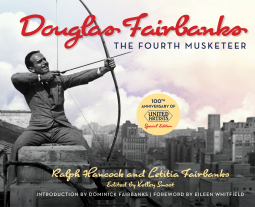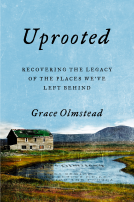
Douglas Fairbanks
The Fourth Musketeer
by Ralph Hancock; Letitia Fairbanks
This title was previously available on NetGalley and is now archived.
Send NetGalley books directly to your Kindle or Kindle app
1
To read on a Kindle or Kindle app, please add kindle@netgalley.com as an approved email address to receive files in your Amazon account. Click here for step-by-step instructions.
2
Also find your Kindle email address within your Amazon account, and enter it here.
Pub Date Feb 01 2019 | Archive Date Jun 28 2019
Rowman & Littlefield | Lyons Press
Talking about this book? Use #DouglasFairbanks #NetGalley. More hashtag tips!
Description
FEW PEOPLE HAVE INFLUENCED HOLLYWOOD history more than Douglas Fairbanks. And who better than his niece and Fairbanks family historian, Letitia, to relate that story? On-screen and offscreen, he was a force of nature, progressing in easy leaps and bounds from the Broadway stage to silent movies when feature-length film was just a few years old. His happy, healthy characters and acrobatic acting style brought a new energy to the medium. But it was through his extraordinary success as a producer that Fairbanks achieved the goal of all creative people: to run his own show. This he did by co-founding United Artists in 1919 with his soon-to-be wife Mary Pickford, Charles Chaplin, and D. W. Griffith. As a producer, he showed visionary taste, collaborating with his directors and designers to enact gallant tales in spectacular settings. Whether he played a young man on the go or a swashbuckling hero in a fairy-tale land, Fairbanks—one of the thirty-six founders of the Academy of Motion Picture Arts and Sciences—put America’s hopes and dreams on film. This updated version of the original 1953 biography has been expanded by the Fairbanks family with archival materials as well as never-before-seen photographs from the Academy of Motion Picture Arts and Sciences, Margaret Herrick Library.
RALPH HANCOCK (1903–1987) began writing for newspapers in St. Louis, Missouri, and became a foreign correspondent from Latin America for various press services. His books include The Compleat Swindler (with Henry Chafetz), Fabulous Boulevard, The Forest Lawn Story (with Hubert Eaton), Puerto Rico: A Success Story, and The Rainbow Republics. LETITIA FAIRBANKS (1913–1992), niece of Douglas Fairbanks and Mary Pickford, was a writer, painter, and illustrator as well as a mother and wife. She created Princess April Morning-Glory, an elaborately drawn fairy tale inspired by her uncle, in 1941. It was posthumously published in 2013. Born in Provo, Utah, Letitia lived in Los Angeles as a child and adult, and later called Dallas and Salt Lake City home. KELLEY SMOOT (b. 1960) is the daughter of Harold and Letitia Fairbanks Smoot. Following in Letitia’s footsteps, Kelley has assumed the mantle of family historian. Like her grand-uncle Douglas, she loves to travel and uses these sojourns to share family stories with book lovers and movie fans alike.
Available Editions
| EDITION | Other Format |
| ISBN | 9781493039920 |
| PRICE | $29.95 (USD) |
Links
Average rating from 5 members
Featured Reviews
 Donna H, Reviewer
Donna H, Reviewer
A Visual Feast! This update on the original edition is a welcome addition to the cinema library. This does give Douglas Fairbanks his due. A must for any film fan!
 Kendahl C, Reviewer
Kendahl C, Reviewer
Given the fact that niece Letitia Fairbanks had a strong influence on its creation, the straightforward honesty of Douglas Fairbanks: The Fourth Musketeer is remarkable and refreshing. The 1953 biography of the pioneering star and producer delves into all facets of his personality, from the delightful to the disappointing. Now this classic biography, which was originally written by Ralph Hancock, with input from Fairbanks, is being reissued with new archival material and unseen photographs, under the editorial supervision of Letitia’s daughter Kelley Smoot, who has assumed the mantle of family historian from her mother.
There are troubling elements of The Fourth Musketeer, like long, impossibly detailed conversations between Doug and the people in his past, but for the most part this is a revealing and evergreen portrait of an actor and producer who set the standard for many things in his industry. It’s a deeply personal account, which taps into the man as much as his work. While Tracey Goessel’s epic biography of Fairbanks is the ultimate resource on the actor, this is a book that captures his soul.
Fairbanks was one of the first stars to make a splash in films, and alongside his second wife Mary Pickford became part of the first celebrity couple. He was also savvy to the financial benefits of owning a piece of his work, becoming one of the founding members of United Artists. As a founding member of the Academy of Motion Picture Arts and Sciences, he was influential in shaping the overall structure of film work as well.
Reaching that career status came easy to Fairbanks. He slid into Broadway roles with little effort and when he realized he was aging out of the best parts, he embraced the large paycheck and creative possibilities of filmmaking with enthusiasm. It was a great outlet for his boundless energy and restlessness, though even bounding through a series of physically ambitious roles was ultimately not enough to satisfy him.
When the cameras weren’t rolling, Fairbanks would travel as much as possible, always striving to find a way to occupy himself. That insatiable quest for satisfaction is the primary theme running through The Fourth Musketeer. As easy as material success and romance came to Doug, his struggle to reckon with himself was more daunting. The key to that may be found in his failure to forge a paternal bond with his son, Douglas Fairbanks Jr., who eventually leaned into a close friendship instead with his father. The actor seems to have feared the way fatherhood made him face his own mortality and the fact that he wasn’t always going to be able to bound through life with the athletic vigor of his youth.
Hancock and Fairbanks are admirable in their thorough examination of Doug and his complexities. Facing his weaknesses, and exploring how they were inextricably intertwined with his unique gifts, in addition to sharing exciting on-set stories and tales of his life with Pickford, makes for a compelling read. This new edition lets the strength of the original book dominate, with the new materials providing additional support to an already sturdy narrative. It’s a great celebration of an eccentric, complicated man who remains as fascinating today as ever.




